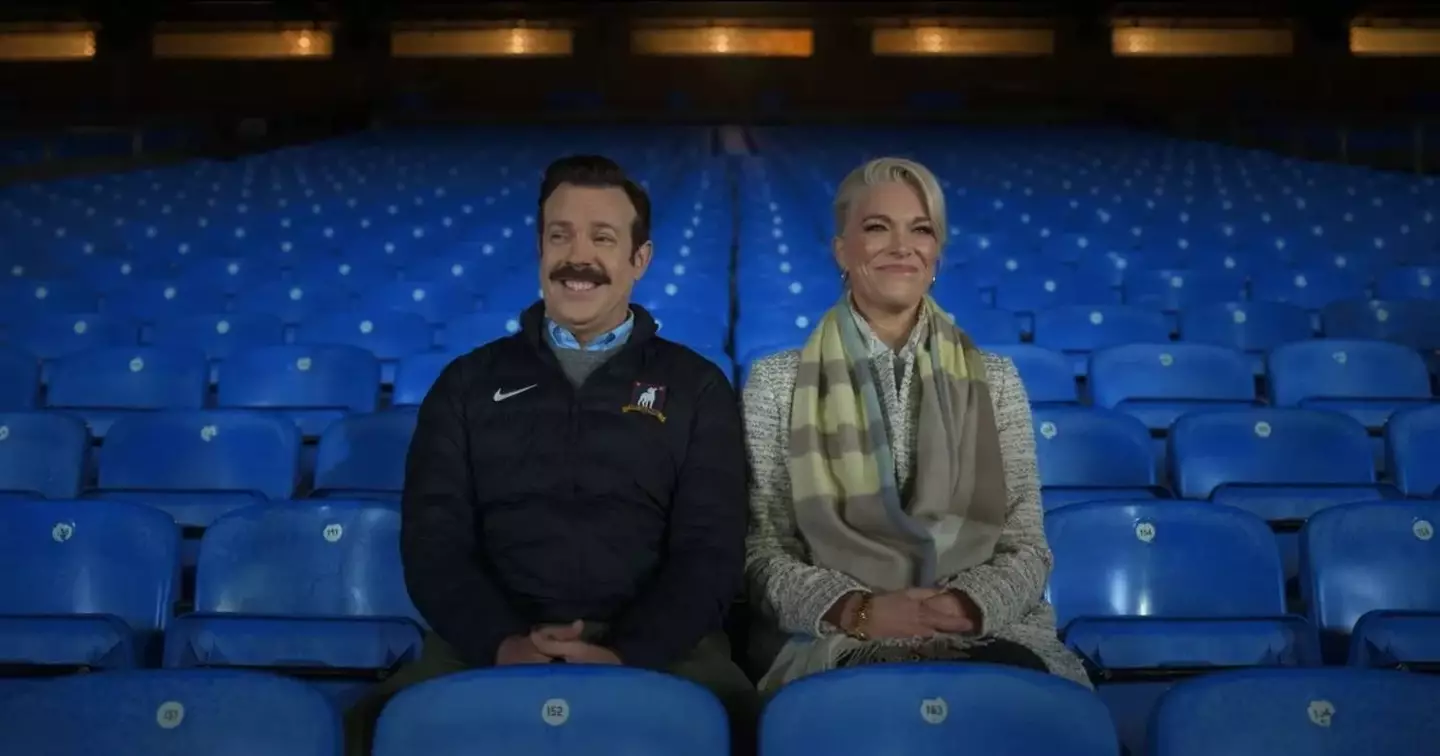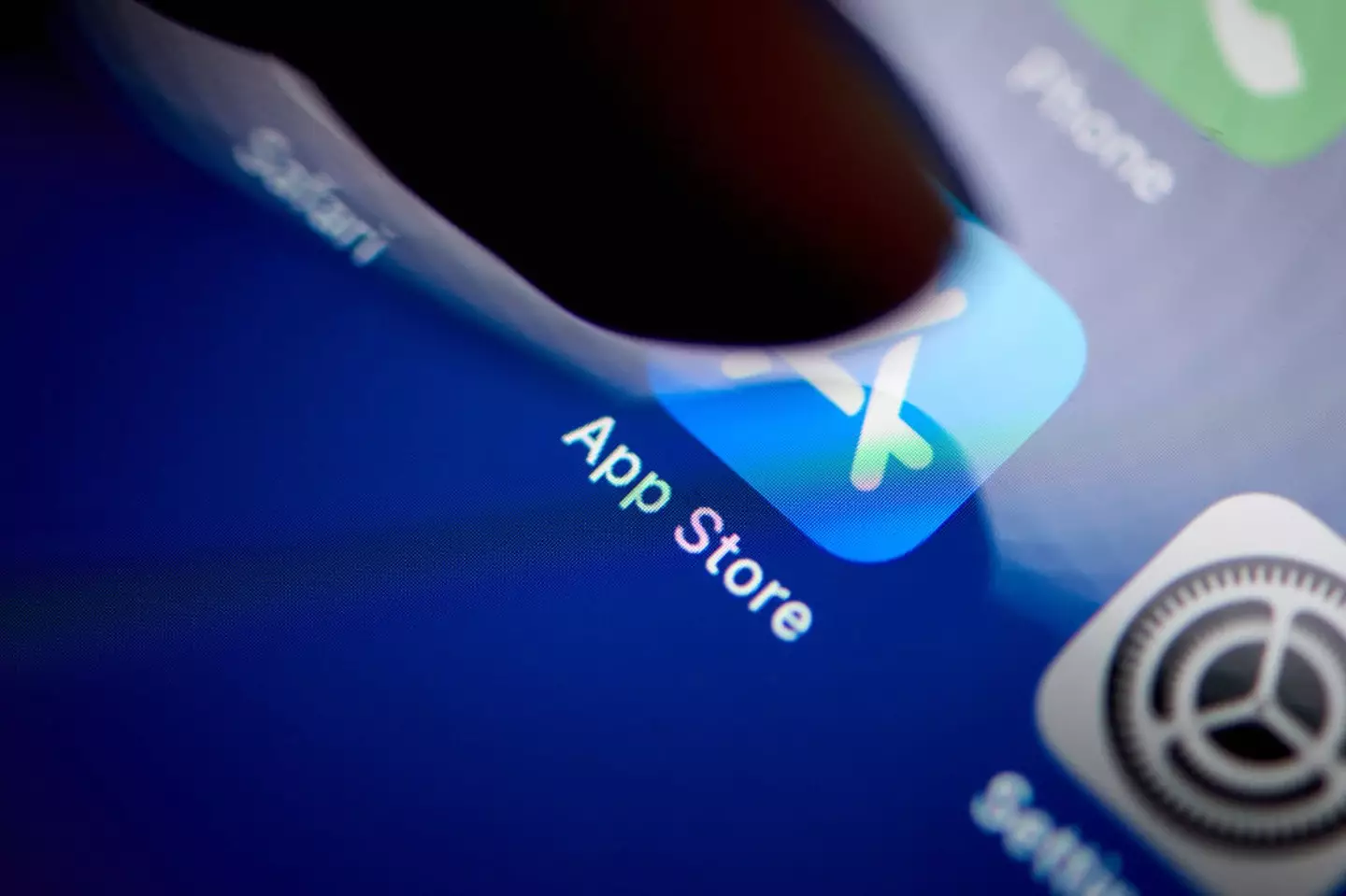With Apple being the biggest tech company in the world in 2025, and boasting an impressive $3.62 trillion, it might be hard to imagine it losing money.
Founded all the way back in 1976 by Steve Jobs, Steve Wozniak, and Ronald Wayne, Apple has soared over the years as one of the ‘Big Five’, and even took the title as the first publicly traded US company to be valued at over $1 trillion in 2018.
Expanding from the early days of building computers in Steve Jobs’ garage, Apple has since branched out into watches, laptops, phones, music, payments, and more.
One of its newest innovations has been Apple TV+.

Severance is heralded as one of Apple TV+’s best shows (Apple)
Even though Disney+ and Netflix fight it out to be the ‘king’ of streaming services, Amazon Prime Video, Max, Paramount+, and all the rest are coming for the crown. Sadly, Apple TV+ doesn’t look like it’s much of a threat in 2025, with Reuters claiming it’s losing Apple over $1 billion a year.
Despite Apple TV+’s subscriber count growing by to 45 million in 2024, that doesn’t take the sting out of supposed $1 billion loss.
It comes as Apple has reportedly spend over $5 billion a year on content since it launched in 2019. Although Apple CEO Tim Cook apparently slashed that to just $500 million in efforts to cut costs in 2024, Apple TV+ could be in trouble.
Apple didn’t immediately respond to Reuters, although Netflix’s 301.63 million subscribers, Disney+’s 124.6 million, and Warner Bros Discovery’s 116.9 million dwarf Apple TV+.
It’s a sad state of affairs considering the streaming service boasts the likes of Severance, Ted Lasso, and Silo. In a January earnings call, Cook reiterated how Apple TV+ productions have earned over 2,500 nominations and 538 wins, including the likes of a Writers Guild of America Awards for Best Drama Series (Severance) and a Golden Globe for Jason Sudeikis as Best Actor – Television Series Musical or Comedy (Ted Lasso).
Simply put, the numbers just don’t seem to be adding up. Apple TV+ is included as a Comcast bundle that includes Peacock and Netflix at $15 per month, while it’s also available on its own to US consumers at $9.99.
We’re sure many of you have made the most of the free Apple TV+ trial when getting a new iPhone, but unfortunately, that isn’t translating into permanent memberships.
Over on Reddit, others were dismayed about the state of Apple TV+, with some calling it the ‘best’ service around – especially in the sci-fi genre.
One Apple TV+ supporter wrote: “It’s one of the best services out there. Quality output.”
Another spotted a potential problem as they added: “They don’t promote the sh*t. They have some of the best streaming content out there. But, you don’t hear people talk about it.”
A third concluded: “I think Apple is taking the Amazon approach here. Lose money until we don’t. Services from smaller companies can’t run at a loss. But they’re rich enough that they can just run at a loss until the competition is gone.”
While Ted Lasso has just been renewed for season 4 and there’s plenty of chatter about Severance season 3, it remains to be seen whether Apple TV+ can continue to hold its own against the other screen juggernauts.
We’re truly in a renaissance of modern television, and while the various streaming services vying for our subscriptions can take a toll on our bank balance, it would be hard to choose one to get the boot. Whether it’s stumping up to watch The Boys on Amazon, Squid Game on Netflix, Daredevil: Born Again on Disney+, or The White Lotus and The Last of Us on HBO, they all have some amazing shows that put the average blockbuster movie to shame.
Among the big hitters is Apple TV+, and while some of you might sleep on it as just that service that comes with a free trial when you buy a new iPhone, it has some stellar shows on there. From the comedy of Mythic Quest to the apocalyptic dread of Silo, there’s also the tense thriller of Slow Horses and whatever the hell is going on in Severance with goats and eggs.
Still, it’s the Jason Sudeikis-led Ted Lasso that has a special place in many people’s hearts. Created by Sudeikis, Bill Lawrence, Brendan Hunt, and Joe Kelly, Ted Lasso is based on a character that the Horrible Bosses actor portrayed for a series of commercials for NBC Sports to promote its coverage of the Premier League.
The show follows the titular American college football coach when he’s hired to coach an English soccer team.

Nearly two years later, Ted Lasso season 4 has been confirmed (Apple TV+)
Also starring Hannah Waddingham, Juno Temple, and Brett Goldstein, Ted Lasso became an overnight sensation that even saw the cast invited to the White House to present Joe Biden with his own AFC Richmond jersey.
While Ted Lasso season 3 seemed like a suitable way to round off the story, there’s been much chatter about season 4 since the credits rolled back in May 2023. Nearly two years later, Sudeikis has finally confirmed that Ted Lasso season 4 is on the way.
In the official announcement statement, Sudeikis gushed: “As we all continue to live in a world where so many factors have conditioned us to ‘look before we leap’, in season 4, the folks at AFC Richmond learn to LEAP BEFORE THEY LOOK, discovering that wherever they land, it’s exactly where they’re meant to be.”
As well as Sudeikis returning in front of and behind the camera, Modern Family‘s Jack Burditt will also serve as an executive producer as part of an overall deal with Apple TV+.
If you owned an older iPhone model, you might be eligible for compensation as Apple faces £853 million lawsuit.
The tech giant is reportedly being accused of selling devices with defective batteries and deliberately slowing them down with software updates.
According to the lawsuit, Apple allegedly sold iPhones with faulty batteries that couldn’t handle the extreme power demands which lead to unexpected shutdowns.
Instead of recalling the devices, Apple was pushing out automatic iOS software updates that secretly had a ‘throttling’ performance, slowing down older iPhones without warning.
Customers were left completely in the dark about the deliberate shutdowns from Apple.
If you owned one of the seven defective models, bought after 12 December 2016, then you could be one of the many 23.8 million affected Apple customers.


The lawsuit is reportedly going to trial in the UK (NurPhoto / Contributor / Getty)
The list of affected models include:
- iPhone 6
- iPhone 6 Plus
- iPhone 6S
- iPhone 6S Plus
- iPhone SE
- iPhone 7
- iPhone 7 Plus
As of now, this case only affects UK customers.
Consumer rights advocate Justin Gutmann filed the £853 million claim, arguing that Apple abused its market dominance and misled customers.
He has hired law firm Charles Lyndon, with the case funded by Balance Legal Capital LLP.
Elsewhere, the iPhone and iPad developer is facing a £1.5 billion class action lawsuit which caused 20 million consumers to overpay in the App Store.
Dr. Rachael Kent, a consumer rights champion and academic at Kings College London, accused Apple of unlawfully and unfairly charging commission of up to 30% on all App Store purchases.

The tech giant is accused of unlawfully and unfairly charging commission of up to 30% on all App Store purchases (Bloomberg / Contributor / Getty)
Basically, when you pay for apps in the store, as much as 30% of what you spend goes straight to Apple. This caused 20 million UK consumers to overpay for apps and in-app purchases.
The claim argues that Apple’s strict payment system rules prevent app developers from offering cheaper alternatives. As a result, consumers pay a hidden ‘Apple tax,’ said Dr. Kent, adding that it’s been imposed for ten years. If the case – which first launched in 2022 – is successful, millions of UK Apple users could receive compensation for years of inflated app prices.
“The digital economy has become an extension of ourselves, and our everyday choices. We use apps to manage every part of our lives: they are the tools that help us shop, work and play,” she explained.
“And while Apple customers love their products it doesn’t give them the right to behave unfairly, and that’s what they’ve been doing.
“Apple has excluded competition and restricted its customers’ choice of where to shop for apps. It charges an excessive rate of commission of up to 30% for developers to sell apps in its shop, and its loyal customers who pay the price.”
This case is part of a series of legal challenges Big Tech companies face globally.





